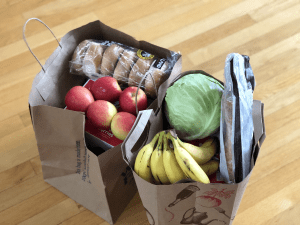As the war between Ukraine and Russia rages on, its economic impact is being felt throughout the world. This blog will discuss some of the many ways in which the Ukraine and Russia conflict are seeping out beyond their respective borders, and affecting the average Canadian.
Gas prices: A quick look at the skyrocketing cost of gas is just one of the many ways in which Canadians are being impacted from this conflict. Many Canadians are filling up ahead of anticipated price hikes, and provincial governments in Canada are providing relief in different ways, such as Alberta’s recent fuel tax cut.
While some of these may seem obvious, it’s important to remember that we can try and cut down our gas consumption through a variety of means. For instance, consider riding a bike if your destination is within a reasonable distance. Consider carpooling with friends and family members, or walk more if you’re afforded that opportunity. Make larger grocery runs to decrease the frequency of shopping trips you might have to do. These are a few ways you can reduce your gas-related expenses.

Inflation: Inflation was already running rampant before the war, and it is very likely that this will be further exacerbated. Many governments are following America’s lead with interest rate hikes announced in many major banks, in order to get inflation under more manageable levels.
While it’s hard to foresee the future, now might be a good time to learn about investing to try and beat the rate of inflation. No clue where to get started? Morningstar, opens a new window might be a good place for you to begin your investment journey.
Food: Ukraine is a major exporter of wheat to many countries, so the cost of many grain products are likely to rise throughout the world, but particularly for countries near Russia and Ukraine. There is a strong possibility of food shortages, and Canada is preparing for a global food emergency.
To combat possible food shortages, it may be a good idea to stock up on non-perishables, such as dried fruits and vegetables, canned fish, and nuts and seeds. Also, please try to be more considerate and don’t throw away uneaten food – try to save them as leftovers to be consumed at a later date.

International shipping delays: Prior to the war, international supply chains were already facing major delays and logistical issues. The Russian invasion is predicted to further intensify these issues and cause significant disruptions to international trade.
If you’re planning on buying international goods, try to plan ahead and expect delays. Consider supporting local businesses to help reduce stress on global supply chains.
With no end in sight of Russia’s invasion, many of these economic issues are likely to worsen before they improve. If you are Ukrainian, or have friends and family that are in Ukraine, please know that you’re not alone. Markham Public Library stands with you in the face of these ongoing injustices. Here is a helpful link that highlights assistance for Ukrainians and Canadians.


Add a comment to: The Economic Impacts of Russia’s Invasion of Ukraine